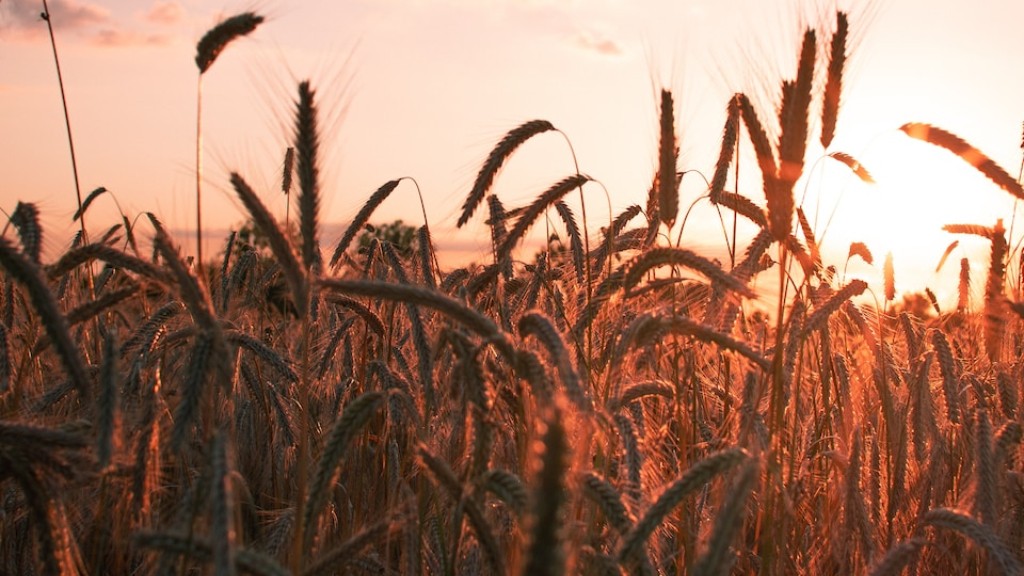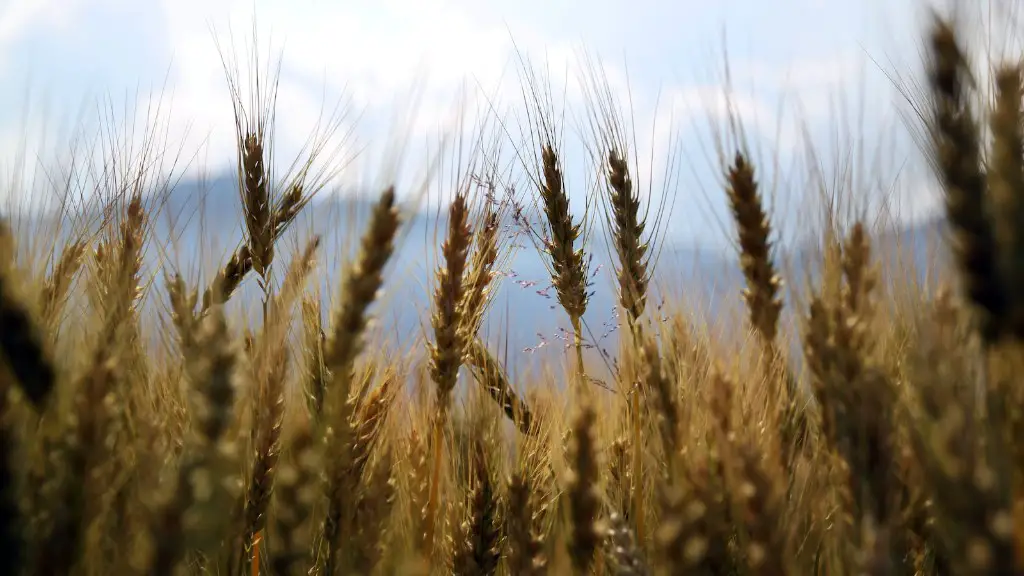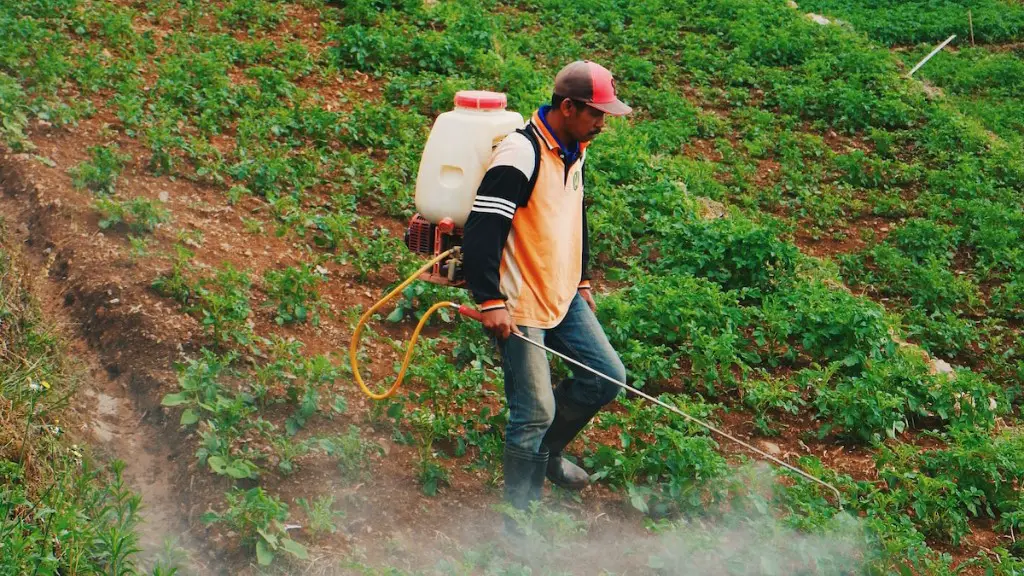Agriculture is a key component of life and integral to sustaining the human population. Understanding what a balanced ration is in agriculture can be a difficult concept, but it is essential in making sure the environment and people’s lives remain in balance. In this post, we’ll discuss what a balanced ration is in agriculture and how it affects the industry and the environment.
A balanced ration is an agricultural technique that can help farmers achieve the goal of producing a consistent product at an efficient rate. The technique strives to provide an appropriate balance of nutrients that the soil needs to grow the crops and sustain them for a healthy yield. When a balanced ration isn’t used, the soil can become quickly depleted, leading to decreased yields and increased costs for farmers.
In addition to providing the soil with the nutrients it needs, a balanced ration can help prevent erosion and improve soil fertility. Erosion can cause serious issues for the environment and the farmer’s crop yield, as well as the soil’s ability to store moisture. A well-balanced ration can help reduce erosion and replenish the soil with the nutrients it needs to remain fertile and productive.
In addition to providing adequate nutrients, balanced rations can also help keep weeds, insects, and other pests away from the crops. By blending a variety of feeds, farmers can introduce a balanced blend of nutrients that minimizes the risk of certain pests contaminating the crop, while also providing the necessary calcium, zinc, magnesium, and iron that the plants need to stay healthy.
Balanced rations can also help farmers reduce costs. By including larger amounts of less expensive ingredients, farmers can save money on the total cost of the ration while still providing the essential nutrients that their crops need. This can result in more efficient farming operations, as well as being more cost-effective.
Balanced rations are an important component of successful agriculture. Without them, farmers will struggle to produce consistently healthy and productive yields. It is essential for farmers to understand the importance of balanced rations and how it affects the quality and cost of their crops.
Nutrient Balance
A balanced ration provides the plants and soil with the nutrients they need to be able to produce a healthy crop yield. When nutrients aren’t provided, the soil can become depleted, leading to decreased yields and higher costs for farmers. The nutrients that are needed to grow healthy crops are nitrogen, phosphorus, and potassium, as well as trace elements like zinc, iron, and magnesium. All of these nutrients need to be present in the soil in the right amount in order for the crops to remain healthy.
In order to achieve the right balance of nutrients, different feeds need to be combined in a ration to provide the appropriate ratio. This ratio will vary depending on the crops that are being grown, as well as the soil conditions and the climate in the area. Additionally, the amount of each feed that is used in the ration will differ depending on the crop and the soil conditions.
It is important for farmers to be aware of nutrient balance and how it affects their crops. Understanding the composition of a balanced ration and how different elements work together can help farmers make more informed decisions regarding the feed they are using and the crop yields they are expecting.
When farmers take the time to create the perfect balance of nutrients for their crops and soil, they will be able to reduce costs, increase yields, and produce healthier crops. Furthermore, the soil will be richer, healthier, and better able to retain moisture and protect the crops from pests and other predators.
Cost Reduction and Efficiency
As mentioned earlier, using a balanced ration can help farmers reduce costs. By including larger amounts of less expensive ingredients in the mixture, farmers can save money while still supplying their crops with all the nutrients they need. This is especially true when combined with other cost-saving measures, such as using organic fertilizers or crop rotation.
Using a balanced ration can also help farmers increase their yields by supplying the right amount of nutrients for their soil and crop. When nutrients are present in the right amounts, the plants can use them more efficiently, leading to better yields with less effort from the farmer. Additionally, balanced rations can help reduce pests and disease, which can lead to more healthy crops with higher yields.
Balanced rations also provide farmers with access to a wide range of feeds that they can choose from. By having access to different feeds, farmers can select the ones that are best suited to their crops and soil, ensuring that they are receiving all of the nutrients they need to produce healthy and robust crops.
In addition, making use of a balanced ration can help farmers become more efficient and productive. By creating the perfect ratio for their soil and crops, farmers can get the most out of their time and resources, and can produce better-quality crops with less effort than before.
Using a balanced ration to provide the necessary nutrients for crops and soil is a smart decision for all farmers. Not only can it help reduce costs, it can also help improve yields, reduce pests and disease, and improve the overall quality of the crop.
Pest and Weeds control
In addition to providing the right balance of nutrients, a balanced ration can help farmers protect their crops from pests and weeds. By using a combination of feeds, farmers can create a ration that is less attractive to pests, while providing the necessary nutrients the crops need to stay healthy. This helps protect the crop against infestations and keeps the soil healthy.
Moreover, a balanced ration can help reduce the amount of weeds in the fields. Weeds can take away valuable resources from the soil, taking away vital nutrients and moisture from the crops. A well-balanced ration can help reduce the amount of weeds in the field and keep them from taking away from the crops’ resources.
Finally, balanced rations can help protect the crop from diseases. By keeping the proper balance of nutrients, farmers can reduce the likelihood of their crops getting sick or diseased. This can save them a lot of time and money in the long run, and help them produce healthier crops.
Using balanced rations to control pests and weeds is an effective and economical way to produce healthy and consistent yields. By providing the necessary nutrients and reducing pests, farmers can keep their crops strong, healthy, and productive.
Good Management Practices
In addition to providing the right balance of nutrients through a balanced ration, farmers should also practice good management practices in order to ensure healthy crops and yields. This includes regularly testing their soil and crops to make sure they have the right balance of nutrients, as well as monitoring their crops for signs of disease or pests.
Furthermore, farmers should practice crop rotation to help protect the soil from becoming overly depleted. By rotating the crops between different areas, farmers can reduce the risk of soil depletion and maintain the right balance of nutrients for their crops.
In addition, farmers should practice soil conservation techniques such as composting and planting cover crops. These techniques help maintain soil fertility, prevent erosion, and reduce the risk of pest and weed infestation. As a result, farmers can produce healthier and higher yields while also reducing their operational costs.
Finally, farmers should use fertilizers and pest control methods that are the least harmful to the environment. This can help reduce runoff and pollution and keep their farms, soil, and crops healthy.
Good management practices are an essential part of agriculture. By taking the time to properly care for the soil and their crops, farmers can ensure that their land is healthy and productive, as well as cost-effective.





